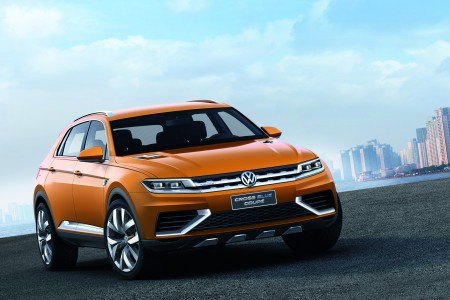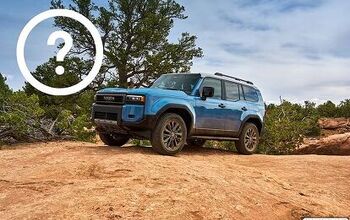No New Product For Chattanooga Unless Works Council Implemented
As Volkswagen gears up for a decision on expanding their Chattanooga factory, a member of Volkswagen’s supervisory board told the Handlesblatt that any new product would be contingent on VW adopting a works council ( explanation by our own veteran of Volkswagen BS here) for the plant.
The Chattanooga Times Free Press quotes board member Stephan Wolf as stating
“We will only agree to an expansion of the site or any other model contract when it is clear how to proceed with the employees’ representatives in the United States,”
At stake is a possible new crossover that could be built there or in a Mexican facility. Wolf, a labor leader, is Deputy Chairman of the General and Group Works Councils of Volkswagen AG, and a member of the all-important Supervisory Board, which is responsible for approving key corporate decisions. The remarks come on the heels of an endorsement of the works council from UAW head Bob King, who told Automotive News
“If I was a worker, if I was a member of the Chattanooga community, and I wanted to have the best chance of getting new investment and new product, I would want a voice on the world employee council,” King said. “I would want somebody there representing the interests of Chattanooga. I wouldn’t want a decision made where every other plant in the world has representation there, and I don’t have somebody speaking up for me.”
Both pro and anti union camps have a lot at stake; for VW’s German labor leaders fear that a non-unionized plant threatens to undermine their powerful organizations in Germany and other locales. The unions enjoy as many as 50 percent of the supervisory board seats according to German law, and can influence who holds top executive posts. That makes Wolf’s remarks all the more credible.
On the other hand, Tennessee politicians fear that a union will hurt their own image of being a “right to work” state where companies can set up shop away from the influence of organized labor. Further complicating matters is a law barring employers from starting their own unions. If a works council were to go through, workers at Chattanooga would have to be represented by the UAW – something that would be mutually beneficial to both the UAW and IG Metall, Germany’s largest labor union.
More by Derek Kreindler
Latest Car Reviews
Read moreLatest Product Reviews
Read moreRecent Comments
- HotRod Not me personally, but yes - lower prices will dramatically increase the EV's appeal.
- Slavuta "the price isn’t terrible by current EV standards, starting at $47,200"Not terrible for a new Toyota model. But for a Vietnamese no-name, this is terrible.
- Slavuta This is catch22 for me. I would take RAV4 for the powertrain alone. And I wouldn't take it for the same thing. Engines have history of issues and transmission shifts like glass. So, the advantage over hard-working 1.5 is lost.My answer is simple - CX5. This is Japan built, excellent car which has only one shortage - the trunk space.
- Slavuta "Toyota engineers have told us that they intentionally build their powertrains with longevity in mind"Engine is exactly the area where Toyota 4cyl engines had big issues even recently. There was no longevity of any kind. They didn't break, they just consumed so much oil that it was like fueling gasoline and feeding oil every time
- Wjtinfwb Very fortunate so far; the fleet ranges from 2002 to 2023, the most expensive car to maintain we have is our 2020 Acura MDX. One significant issue was taken care of under warranty, otherwise, 6 oil changes at the Acura dealer at $89.95 for full-synthetic and a new set of Michelin Defenders and 4-wheel alignment for 1300. No complaints. a '16 Subaru Crosstrek and '16 Focus ST have each required a new battery, the Ford's was covered under warranty, Subaru's was just under $200. 2 sets of tires on the Focus, 1 set on the Subie. That's it. The Focus has 80k on it and gets synthetic ever 5k at about $90, the Crosstrek is almost identical except I'll run it to 7500 since it's not turbocharged. My '02 V10 Excursion gets one oil change a year, I do it myself for about $30 bucks with Synthetic oil and Motorcraft filter from Wal-Mart for less than $40 bucks. Otherwise it asks for nothing and never has. My new Bronco is still under warranty and has no issues. The local Ford dealer sucks so I do it myself. 6 qts. of full syn, a Motorcraft cartridge filter from Amazon. Total cost about $55 bucks. Takes me 45 minutes. All in I spend about $400/yr. maintaining cars not including tires. The Excursion will likely need some front end work this year, I've set aside a thousand bucks for that. A lot less expensive than when our fleet was smaller but all German.


































Comments
Join the conversation
Am I the only one that sees the VW plant NOT having "representation" as a good thing? Yes, the other plants around the globe may have their unions. That doesn't mean they are beneficial to the factory or the workers. I know it's easy to play armchair CEO, but I would be more apt to give the new models to a plant that didn't require me to get permission from the workers to do a partial shutdown for retooling purposes.
I don't follow how VW would be able to force their employees into a union in a right-to-work state any more than the UAW could.